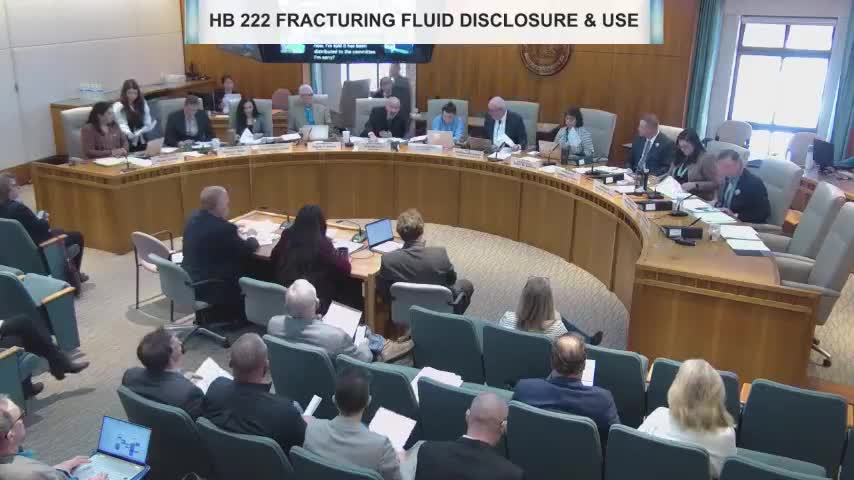Committee tables repeal of clean‑fuel standard after divided testimony
Get AI-powered insights, summaries, and transcripts
Subscribe
Summary
House Bill 328, which would repeal New Mexico’s clean‑transportation fuel standard and bar the Environmental Improvement Board from adopting related rules, drew divided testimony before the committee; the panel voted to table the bill.
Representative Pettigrew introduced House Bill 328 to repeal the state’s 2024 clean‑transportation fuel standard and to prohibit the Environmental Improvement Board (EIB) from adopting or continuing rules implementing a clean‑fuel standard.
Opponents urged the committee to reject the repeal. Sierra Club volunteer Alyssa Kenny Geier and the Southwest Energy Efficiency Project told the committee that the standard (now in rulemaking) is intended to reduce transportation emissions, encourage lower‑carbon fuels and spur investment in clean transportation technologies.
Supporters, including the Independent Petroleum Association (represented by Jim Winchester), argued the standard functions like a fuel tax and would raise gasoline prices in a way that disproportionately affects rural and low‑income drivers. Winchester said market mechanisms for credits would shift costs to consumers and urged discontinuing the rulemaking before it takes effect.
Committee members asked a range of questions about rules, infrastructure readiness for electric vehicles, impacts on rural dealers and repair shops, and the role of statewide vs. local regulation. Sponsor Pettigrew argued the bill returns policy decisions to the Legislature rather than unelected rulemaking bodies and said the state lacks accredited electrical supply capacity to support rapid electrification.
Outcome: The committee voted to table House Bill 328. A roll‑call vote recorded seven members voting to table and four voting against tabling the measure, so the motion to table carried.
Why it matters: Repeal would have halted the clean‑fuel program and prevented EIB rulemaking; tabling leaves the program in rulemaking for now and signals continued debate over the state’s approach to reducing transportation emissions.
